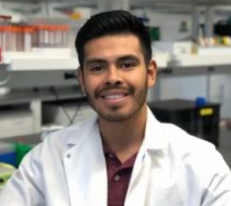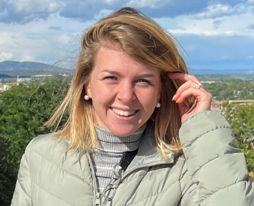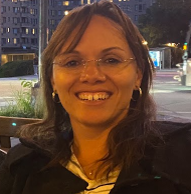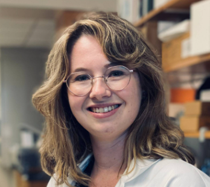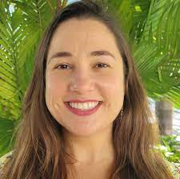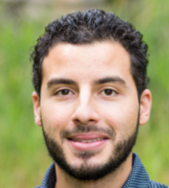Awards
HIRN 2023 Trainee Scholarship Recipients
The following trainees are recipients of the HIRN 2023 Annual Investigator Meeting!
Award recipients were selected solely based on evaluations by HIRN members on their presentations (oral or poster) at the Annual Investigator Meeting. Oral presentations were evaluated by all audience attendees and posters were evaluated by 3 pre-assigned HIRN Investigators. Each award recipient can acknowledge this award on their CV.
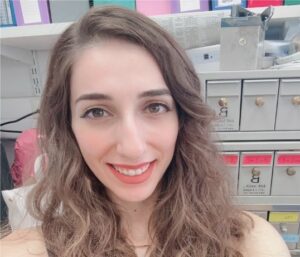 |
Zeina Drawshy
Zeina Drawshy is a 5th year PhD student in the laboratory of Dr. Yuval Dor. Her research focuses on the cell type-specific DNA methylation markers for accurately determining the fraction and addressing the function of the pancreatic cell types in human islet and pancreas specimens. |
|
|
|
Miguel Medina-Serpas
Michael Medina-Serpas is a Graduate Student in the laboratory of Dr. Todd Brusko. He has assembled a cohort of non-diabetic, at-risk, and T1D donors and present 13 donor-matched sets of pancreas and pancreatic lymph nodes (pLN) in which they assayed using spatial transcriptomics. He observed a global increase in inflammatory chemokine expression and detected an enriched immune signature in the pancreas of donors presenting with multiple islet autoantibodies independent of clinical disease status. Future directions include identifying common features of the immune response in both the pLN and pancreas and further identification of tissue specific processes that are associated with disease. |
|
|
|
Liza Zamashanski
Liza Zamashanski is a MD PhD student in the laboratory of Dr. Yuval Dor. Her research focuses on impaired RNA editing in islets models early stage Type 1 Diabetes. |
|
|
|
Catarina de Andrade Barboza
Liza Zamashanski is a MD PhD student in the laboratory of Dr. Yuval Dor. Her research focuses on impaired RNA editing in islets models early stage Type 1 Diabetes. |
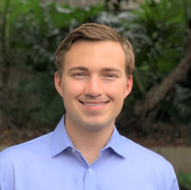 |
Gregory Golden
Gregory Golden is a Postdoctoral Research Scientist in the laboratory of Dr. Michael Betts in the Microbiology Department at the University of Pennsylvania. He is searching for immune cells that respond to and eliminate insulin-producing cells during Type 1 Diabetes. He has developed a novel yet simple approach to co-incubate immune cells and target pancreatic islet cells from the same donor. This approach allows for the analysis of how both immune cells and islet cells respond when an autoimmune reaction is occurring and may give new insights into T1D immune pathogenesis. |
|
|
|
Mollie Huber
Mollie Huber is a graduate student co-mentored by Drs. Clayton Mathews, Mark Atkinson, and Edward Phelps at the University of Florida. Her work utilizes live pancreas tissue slices generated from human organ donor tissue to assess beta cell function and immune cell activity during the different stages of type 1 diabetes pathogenesis. She has found that beta cells have dysfunctional responses to high glucose prior to their death during diabetes development and that this dysfunction is not dependent on T cell infiltration. Instead, this functional defect may reside in the beta cell. |
|
|
|
Luciana Mateus Goncalves
Luciana Mateus Goncalves is a Postdoctoral Research Scientist in the laboratory of Dr. Joana Almaca in the Department of Medicine, Division of Endocrinology at the University of Miami. She studies Islet capillaries that are made of endothelial cells covered by mural cells named pericytes. These pericytes are crucial for vascular homeostasis, elucidating potential changes in their function/phenotype is critical for our understanding of Type 1 Diabetes pathogenesis. Her data shows that islet pericytes are dysfunctional and capillaries unresponsive at early stages of Type 1 Diabetes. |
|
|
|
Stephan Ramos
Stephan Ramos is a Postdoctoral Research Scientist in the laboratory of Dr. Seung Kim at Stanford University. He is studying novel methods to modulate the immune system and induce tolerance to transplanted pancreatic islets. |
|
|
Rob Robino
Rob Robino is a graduate student in the laboratory of Dr. Leonardo Ferreira at the Medical University of South Carolina. He studies beta cell replacement can cure type 1 diabetes. Hurdles to implement it include scarcity of beta cells and the need for immunosuppression. We provide proof-of-concept for a strategy to protect stem cell-derived beta cells from immune rejection using regulatory T cells. |
|
|
|
Snegha Varghese
Sneha Varghese is a CIRM Postdoctoral Fellow in the laboratory of Dr. Sangeeta Dhawan at City of Hope. Her research focus on DNA damage as a key driver for beta-cell defects in diabetes. Majority of the beta-cell growth in humans occurs within 5 years of birth via replication; our study establishes that replicating beta-cells are highly vulnerable to DNA damage, especially in this early growth phase. We have established that the Cohesin complex is indispensable for preventing DNA damage during beta-cell growth and Cohesin deficiency drastically impairs beta-cell growth and function, suggesting that DNA damage in the beta-cells in early life may compromise their health in the long-term. |
